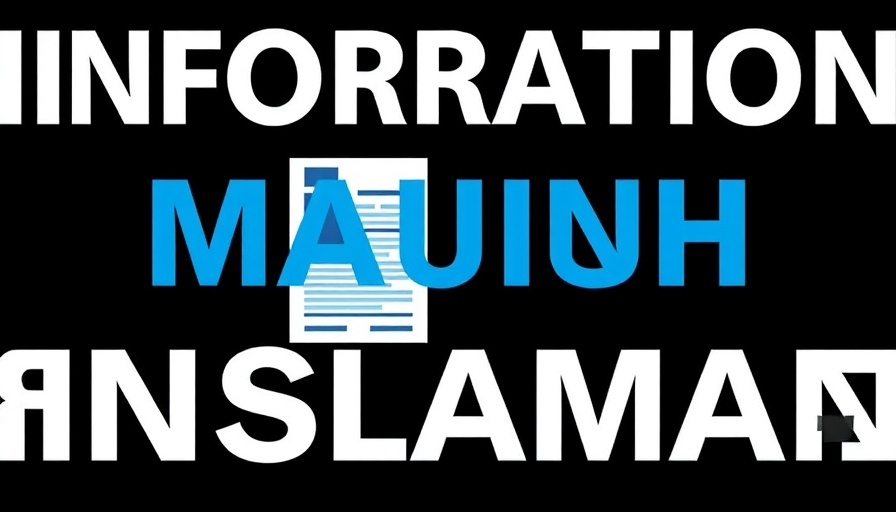
Understanding the Importance of a Nonprofit Social Media Policy
Social media has become a vital communication channel for nonprofits, allowing them to engage with supporters and increase visibility for their cause. However, without an effective social media policy, organizations risk facing significant challenges that could affect their reputation and operations. A comprehensive social media policy, therefore, becomes not just a framework for responsible engagement but also a necessary shield against potential risks. This guide provides actionable steps to help nonprofits craft a policy that aligns with their mission while protecting their integrity.
Setting the Stage: The Role of Social Media in Nonprofits
According to Pew Research, about 72% of American adults actively use social media. This statistic highlights the urgency for nonprofits to harness these platforms not just for outreach but also for relationship-building with their communities. Tools like Facebook, Instagram, and Twitter, bring nonprofits closer to their audience, fostering engagement that is crucial for advocacy and fundraising. However, these platforms also expose organizations to risks like negative publicity and legal repercussions if not managed properly.
Key Elements to Include in Your Nonprofit Social Media Policy
An effective social media policy for nonprofits should cover several essential components:
- Designate Responsibilities: Clearly outline who in your organization is authorized to post on official social media channels. This minimizes the chances of unauthorized or inappropriate communications.
- Establish Tone and Voice: Define how your nonprofit communicates. It’s crucial that all messaging aligns with your brand identity, whether the tone is serious, friendly, or educational.
- Response Protocols: Implement guidelines for handling various situations, from customer inquiries to PR crises. Knowing how to address negative feedback or complaints can prevent them from escalating.
- Content Guidelines: Specify what constitutes acceptable content, including limits on sensitive information and copyright issues. This provides clarity to staff and volunteers about the types of posts that represent your nonprofit well.
- Use of Personal Accounts: Detail how employees can use their platforms to advocate for the nonprofit while also advising them on avoiding behavior that could harm the organization’s reputation.
The Value of a Social Media Oversight Committee
Creating a social media oversight committee can significantly enhance the development of your social media policy. This team may include staff members, communications experts, and board members who together can ensure the policy aligns with your nonprofit’s values. By collaborating, the committee can refine the policy to address potential gaps thoughtfully and integrate diverse perspectives.
Introducing Training and Review Procedures
To maximize the effectiveness of your social media policy, regular training sessions for staff and volunteers on social media best practices are essential. This not only fosters a culture of awareness around digital engagement but also ensures everyone understands their roles and the policy’s guidelines. Additionally, implementing a review process helps keep the policy relevant in a rapidly evolving social media landscape. Consider revisiting the policy annually or biannually to address changes in technology and organizational objectives.
Inspiring Trust Through Effective Social Media Use
A solid social media policy not only protects your organization but also fosters trust. When followers see your nonprofit maintaining consistent messaging and effectively managing interactions, they are more likely to engage and support your mission. By prioritizing transparency and ethical communication online, you build a solid foundation of trust that can attract donations, volunteers, and partnerships.
Practical Steps to Implementation
To implement your nonprofit social media policy, provide your team with accessible templates to aid in content creation. Resources such as social media calendars and post templates can enhance consistency and professional appearance online. Offer regular feedback on social media content, celebrating successful engagements that align with organizational values.
In conclusion, creating an effective social media policy is a vital step for nonprofits to navigate the digital landscape safely and responsibly. As the nonprofit realm increasingly embraces online platforms for advocacy and connection, establishing clear guidelines will empower organizations to engage confidently while safeguarding their missions. Don’t hesitate—take the first step and download our free nonprofit social media policy template today.
 Add Row
Add Row  Add
Add 


Write A Comment